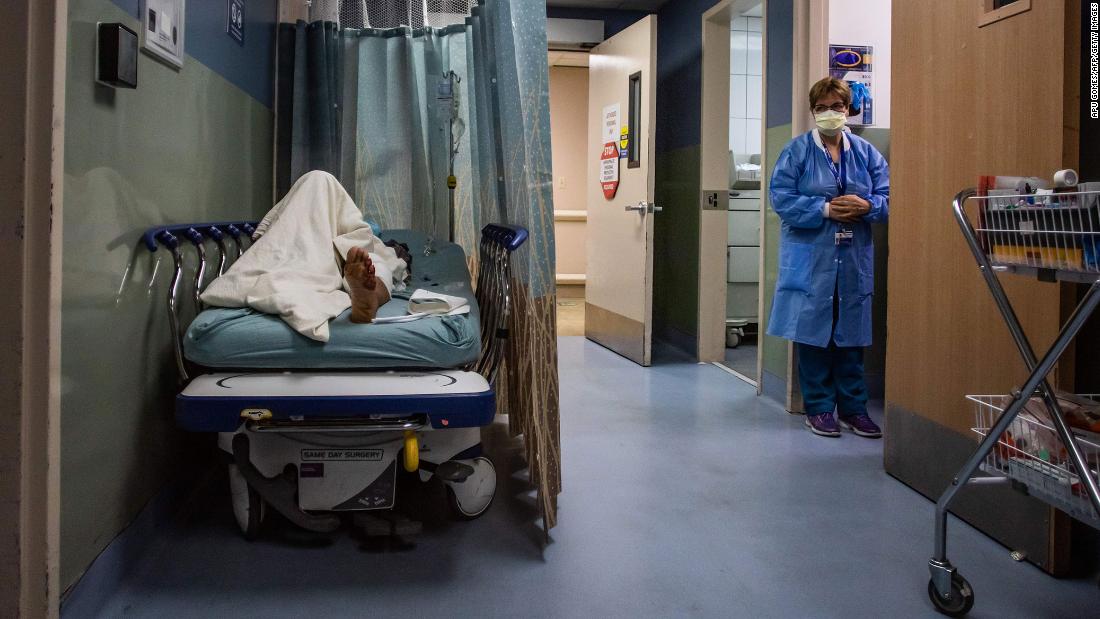The number of new cases is still “dramatically higher” than last summer’s peak, said Dr. Rochelle Walensky, director of the United States’ Center for Disease Control and Prevention.
But understanding what the rest of the year will bring depends on who you ask. Some experts are embracing optimism and others are preparing for a storm. Many say it is too early to know. Everyone is concerned about the new variants. And they expect you to do your part to prevent the number of variants from growing.
“Despite the trends going in the right direction, we remain in a very serious situation,” Walensky said at a press conference at the White House on coronavirus on Monday. “Covid-19 continues to infect many people.”
Walensky warned that the spread of variants is “a threat that could reverse the recent positive trends we are seeing”.
Viruses change as they spread, and with so many cases worldwide, the coronavirus has had many opportunities. Some changes are harmless. Others make it more contagious.
It happened with the variant first detected in the United Kingdom. Its transmission capacity is so worrying that some experts like Dr. Peter Hotez, dean of the National School of Tropical Medicine at Baylor College of Medicine, describe the sudden increase as a “hurricane”.
This, he says, is the eye of the storm.
Hotez told CNN on Tuesday that the new variants discovered in the UK, South Africa and Brazil could change what currently appears to be a positive trend.
“Everything is going in the right direction. The numbers are falling. We are starting to accelerate in terms of vaccination. Everything looks very promising. Unfortunately, we have these peak variants that seem to be increasing and that really worries me,” said Hotez.
Epidemiologist Michael Osterholm called the variant threat “hurricane category five” and warns that the country has not seen an end to new case records.
Even with vaccination in progress, more cases can lead to more hospitalizations and deaths.
And while that hasn’t happened yet, experts fear the virus could mutate in such a way that tests, vaccines and treatments with antibodies sensitive to the original coronavirus will stop working. More research is needed, but so far, there are indications from vaccine tests and antibody treatments that they still work against the variants, although some may not work as well. Vaccine manufacturers are already looking for ways to adapt them, if necessary.
Variants are one of the reasons why Dr. Anthony Fauci, director of the National Institute of Allergy and Infectious Diseases, wants you to be vaccinated as soon as it is your turn.
“You need to be vaccinated when it is available as quickly and expeditiously as possible,” Fauci said at a news conference with the White House’s Covid-19 response team. “Viruses cannot mutate if they don’t replicate. And if you stop replicating by vaccinating widely and not giving the virus an open playing field to continue to respond to the pressures you put on it, you won’t get mutations.”
Other experts are even more optimistic that the country will be ahead of the variants. Former Food and Drug Administration commissioner Dr. Scott Gottlieb said on CBS on Sunday that the cases should stabilize, even if the variants cause “localized access points”.
Dr. Ashish Jha, dean of the Brown University School of Public Health, said the country is in a “much better situation” today than it was three weeks ago. “The cases are falling and the optimism and the type of outlook for the future is very bright, once we enter in May and June,” said Jha. “The next few months can end up being very difficult.”
Jha said the “problem” that may determine the future of how the country will face the pandemic will be how to deal with the variant. It has the potential to cause the problems that Osterholm warned of, said Jha; however, if people have a short-term strategy to manage this and remain vigilant, “things are going to get much, much better.”
Dr. Claudia Hoyen, an infectious disease specialist at the University Hospitals Cleveland Medical Center, thinks that, with the variants and the slow launch of the vaccine, it is too early to know what the future of the pandemic will be like.
In the immediate term, Hoyen said he is almost certain that things will look very much like they have been for some time.
You will still be wearing masks in the near future and should not dine indoors on Valentine’s Day.
“We will learn more each day,” said Hoyen. “I know it is not something that people want to hear, because it is not something I want to say. I would love to be able to say that in March it will be like that, and in June, it seems so, but unfortunately, there are still many pieces in motion in this break -head. Every time we think we have reached a point where we know what to expect, something else happens. “
Hoyen said he understands people’s frustration.
“But they also need to understand that this is really unlike anything we’ve seen before and it’s changing so quickly that, you know, you really need to try your best to stay one step ahead of that,” Hoyen said.
To stay one step ahead, you know the procedure. Keep physical distance. Wear a good mask. Wash the hands. Avoid crowds.
“We have to be patient,” said Hoyen. “It’s difficult, very difficult. We are human, we like each other. But we still have to keep our guard up. You don’t want to be the person who created another variant and you want to be safe.”
“At the end of the day, what we want is for all of us to go through this together, so that, maybe next Christmas, we hope things are better and we can celebrate with everyone who is here today.”
